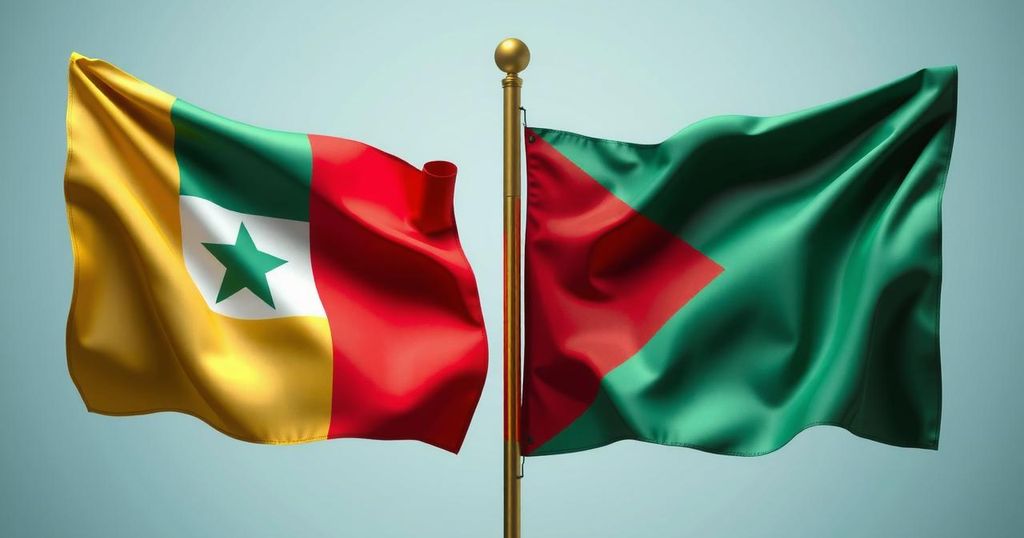Global news
AB, AFRICA, ANKARA, ARABIAN SEA, ASIA, BAYRAKTAR, BILATERAL RELATIONS, CHINA, DEFENSE COOPERATION, DIPLOMACY, EMRE PEKER, ERITREA, ETHIOPIA, EURASIA GROUP, EUROPE/ASIA, FIGHTER JETS, HASSAN SHEIKH, HASSAN SHEIKH MOHAMUD, HORN OF AFRICA, INTERNATIONAL RELATIONS, MEXICO, NORTH AMERICA, PEKER, REC, SOMALIA, SOMALILAND, TURKEY
Fatima Khan
0 Comments
Turkey Mediates Agreement to Resolve Ethiopia-Somalia Maritime Dispute
Ethiopian and Somali leaders have reached a key agreement mediated by Turkey to resolve a yearlong conflict over Ethiopia’s access to the Arabian Sea. This agreement comes amid concerns about regional tensions reminiscent of past conflicts. Turkey’s involvement underscores its strategic interests in the Horn of Africa, aiming to enhance diplomatic engagement and economic ties with both nations.
In a significant development aimed at alleviating tensions in the Horn of Africa, Ethiopian President Abiy Ahmed and Somali President Hassan Sheikh Mohamud have reached a pivotal agreement to settle an extended dispute regarding Ethiopia’s access to the Arabian Sea. This accord was revealed in Ankara after extensive discussions mediated by Turkish President Recep Tayyip Erdoğan, who is increasingly establishing Turkey as a crucial facilitator in regional peace efforts.
The underlying cause of this conflict originates from Ethiopia’s status as the most populous landlocked nation globally since Eritrea’s independence in 1993. The absence of a significant seaport has considerably hindered Ethiopia’s economic development. Earlier this year, Ethiopia initiated a controversial arrangement to lease a port from Somaliland, a self-declared independent region of Somalia, which prompted Somalia to threaten the expulsion of Ethiopian troops engaged in anti-terror operations against al-Shabab. Concerns arose that such tensions could lead to a resurgence of hostilities reminiscent of the catastrophic Ogaden War of 1977-78.
Turkey’s involvement in this conflict is rooted in its longstanding diplomatic connections with both Ethiopia and Somalia, as well as its vested interest in promoting stability in the region. Turkey maintains its largest overseas military facility in Somalia and has provided military support to the Ethiopian government during the Tigray conflict, highlighting its commitment to both nations. Emre Peker, an expert from the Eurasia Group, noted, “The agreement will help make Turkey into an even more relevant power in the region, with Ankara pitching itself as a security partner for African countries.”
Further emphasizing the bilateral benefits, Turkish investments in Ethiopia are significant, exceeding $2 billion. The agreement is anticipated to enhance Turkey’s economic foothold in Africa by potentially allowing Turkish enterprises to gain preferential access to lucrative infrastructure projects that may arise from improved trade through Somali ports.
Looking ahead, representatives from the involved parties are scheduled to reconvene in February for technical discussions aimed at finalizing the particulars of port access. This next meeting will be crucial in determining the implementation of the agreement and ensuring lasting stability in the region.
The article discusses the recent agreement between Ethiopia and Somalia facilitated by Turkey, which aims to settle a yearlong dispute focused on Ethiopia’s access to maritime trade routes. The historical context of Ethiopia being a landlocked country since Eritrea’s secession and the geopolitical dynamics involving Turkish interests in both nations create a backdrop for understanding the conflict’s complexities and potential implications.
In conclusion, the agreement reached between Ethiopia and Somalia, brokered by Turkey, marks a significant step toward resolving a potentially escalating conflict. Turkey’s strategic role as a mediator highlights its growing influence in the Horn of Africa. As the parties prepare for upcoming discussions, the resolution of port access arrangements will be crucial for fostering regional stability and economic cooperation.
Original Source: www.gzeromedia.com




Post Comment